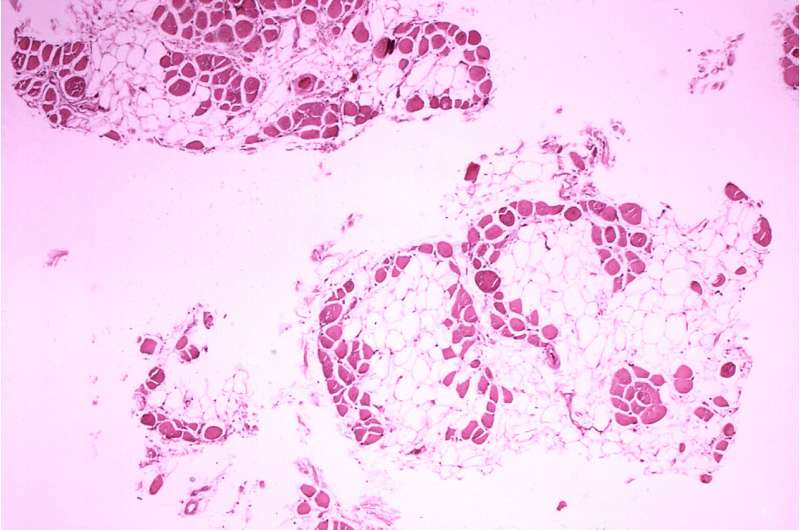#New research shows certain exercises can help those with muscular dystrophy

Table of Contents
“New research shows certain exercises can help those with muscular dystrophy”

Muscular dystrophy is a debilitating disease that causes the weakness and breakdown of skeletal muscles that progressively worsens over time. According to a team of University of Maine researchers, certain activities may help strengthen muscles affected by muscular dystrophy—and they figured it out by stimulating zebrafish and watching them work out.
Zebrafish are an effective test model of muscular dystrophy because of the molecular similarities between zebrafish and human muscles. Zebrafish can also be bred with a mutation that closely models Duchenne muscular dystrophy, a severe type of muscular dystrophy that affects young boys.
Zebrafish can’t lift weights, though, so UMaine researchers used a process called neuromuscular electrical stimulation (NMES), which stimulates specific nerves to elicit muscle contraction. The researchers designed four NMES regimens and named them after four common weight lifting routines: power, strength, hypertrophy and endurance. The zebrafish were then put into an underwater 3D printed “gym” made up of tunnels and electrodes, and the researchers analyzed their skeletal muscles to see how they had changed.
The study found that while each of the NMES weightlifting “routines” affected the zebrafish neuromuscular junction morphology, swimming and survival differently, only one—the endurance neuromuscular stimulation (eNMES)—improved all three, as long as it was accompanied by a certain antioxidant, heme oxygenase, and a receptor called integrin alpha7.
“eNMES is defined by high-frequency, low-voltage pulses, which is similar to a high-repetition, low-weight workout that we would do in the gym. The long-standing consensus in the muscular dystrophy field is that minimizing resistance training preserves muscle strength and mass because it lowers the risk for muscle damage. However, our data suggest that a certain level of NMES-induced activity is actually beneficial for overall muscle health,” says Elisabeth Kilroy, first author of the study who conducted the research for her Ph.D. at UMaine. Kilroy is now the director of the neuroMuscular ObserVational Research (MOVR) at the Muscular Dystrophy Association.
The study was published March 24, 2022, in the journal eLife.
The research suggests that the right type of resistance training might be beneficial to human patients with muscular dystrophy. There is also potential for NMES to improve mobility and strength in patients with muscular dystrophy, though not much is known about applying the technology this way.
“I think the most exciting aspect is that we established a model for neuromuscular plasticity in healthy versus diseased muscle, and this model will allow us to elucidate mechanisms that could be the basis for potential therapeutics in the future,” says Clarissa Henry, professor of biological sciences, director of Graduate School of Biomedical Science and Engineering, and principal director of the Henry Lab.
Study finds flu ravages muscles of zebrafish with muscular dystrophy
Elisabeth A. Kilroy et al, Beneficial impacts of neuromuscular electrical stimulation on muscle structure and function in the zebrafish model of Duchenne muscular dystrophy, eLife (2022). DOI: 10.7554/eLife.62760
Citation:
New research shows certain exercises can help those with muscular dystrophy (2022, March 24)
retrieved 24 March 2022
from https://medicalxpress.com/news/2022-03-muscular-dystrophy.html
This document is subject to copyright. Apart from any fair dealing for the purpose of private study or research, no
part may be reproduced without the written permission. The content is provided for information purposes only.
If you liked the article, do not forget to share it with your friends. Follow us on Google News too, click on the star and choose us from your favorites.
For forums sites go to Forum.BuradaBiliyorum.Com
If you want to read more Like this articles, you can visit our Science category.




